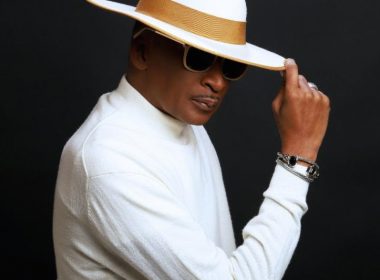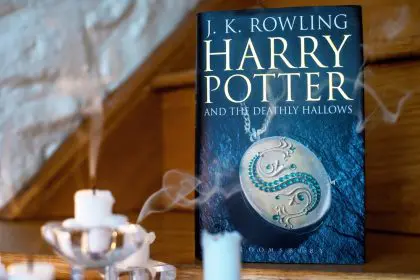
PR vet Angelo Antonio Ellerbee has penned a new book, Ask Angelo, about his experiences in the entertainment industry. Find out what he said about the industry and his book in the exclusive interview below.
What inspired you to write Ask Angelo?
Timing for one. With show business turning into “no business” for many up-and-coming musicians, I felt it was a good time to share some of my experiences to keep artists motivated. With my radio show by the same name, and allowing Q-and-A’s with callers, the book is a fitting accompaniment.
Do you feel, even with the proper media training, that the music industry in its current state is still able to create mega artists like Mary J. Blige, Alicia Keys, and some of the others artists you’ve worked with?
The thing about the industry is I don’t know if they are “creating” anything more than the illusions and the marketing, whereas the talents you mentioned came in the game already equipped with the talent that would get people to notice. That said, even the most gifted artist needs promotion and as long as the music industry can produce dollars, it can manufacture these mega-artists. The real question is, will the internet and other technology make the middleman so obsolete eventually that the industry will give up trying to create and just focus on selling what they are given.
In the book, you talk about being gay in hip-hop. Were there any challenges you had to overcome working with hyper-masculine artists like DMX?
Because I’m self-confident, I can deliver my services and talents with ease and very little trouble. But if an artist doesn’t know who they are, it makes it harder for me. I was able to identify with my sexuality from the start. I was able to close the door to those things that would prevent my growth and development in a genre of the industry that wasn’t accepting me. I always knew and told everybody, including DMX, who I was and what I was. X never judged me and let me do my job without that being an issue. Simply said, I don’t get my sexuality mixed up with my contributions. And if you don’t like? Here’s some “OG” for ya … “let the doorknob hit ya where the good Lord split cha.”
You discussed some of the colorful artists you’ve worked with over the years. Any funny stories you can share about an experience with an artist?
Yeah, if you like dark humor. My adventures have been funny after the fact, like me standing on top of a desk demanding my revenues for money owed to me. My best advice if you want to laugh at my war stories — not to sound cliché — buy the book.
I’ve always felt that musical entertainers, unlike actors and actresses, become grandiose much faster because they are surrounded and insulated by “yes men.” Have you found this to be true?
Absolutely and I address this heavily in the book. “Check-takers” is what I call them. And these enablers are often the cause of even death and destruction when they pick up the checks but won’t pick up on the clues that an artist is suffering or abusing, or they ignore it. But I wanna know how many checks can a “yes man” collect off of a dead star? Yes men need to say “yes, I will help you be a stronger person as well as a talent.” They need to say yes to the responsibility of helping these artists stay human even if they can’t stay humble and if the handlers are smart they’ll say yes to helping somebody stay alive.
Is this part of the reason you feel artists need to keep an OG around?
You better believe it. You would keep your mama and daddy around I hope, right? Not just because of their roles but because of the mature hand they lend to your life. Although I dislike the term “OG” I say, “I’d rather have an OG than a NO G.” Like my former client DMX says in one of his songs, “I’ve seen it all.” That’s like having a manual in your back pocket and a compass on your shoulder. Where you going with no training, no connections, no knowledge of the many landmines left in the field? Those peers and so called ‘relevant’ friends and yes men know just enough to walk you over a cliff, unless they are willing to take counsel with some five-star generals, and those stars are earned baby.
I’ve been impressed that an artist as large as Beyonce has kept publicist Yvette Noel-Schure on her team. Do you feel that as artists grow in popularity that they either are encouraged or feel the need to move beyond Black representation?
By some people, sure but they should think about this: So if Yvette were Asian or Caucasian and she was around this long, do you know some people would ask the question, why is Beyonce not diversifying and trying out the Black angle? You can’t win with some people and what they think you ought to be moving into or out of. I think a good teammate is key to longevity, no matter what ethnic variety they rep. The industry encourages tastemakers, heavy hitters, and result bringers more than anything and Yvette must be still bringing it because Beyonce or her label ain’t no fool. As for other artists trying to get to that level, I also speak on this in the book, about teamwork and how that system needs to be there. The really good teams last just like that, with few interruptions, because who has time to be constantly replacing important positions? If it ain’t broke don’t fix it is why you see some people stick around. Somebody in place to rep your core audience at a grassroots and cultural level is crucial, even with other engines in place to handle more mainstream stuff.
What is the key to having 46 years of longevity in the entertainment industry?
Being blessed to stay alive at all … so you can show up to play the game and possibly score.











